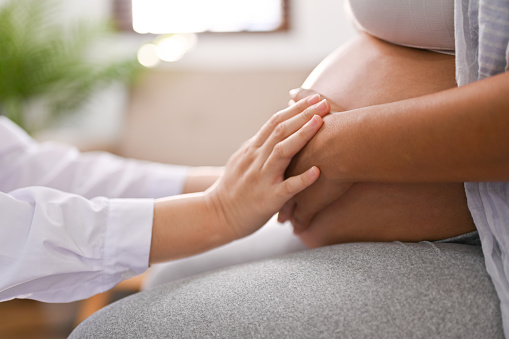ALBANY, N.Y. (NEXSTAR) — A statewide standing order in New York aims to make it easier for mothers to work with doulas and get prenatal care. According to Dr. James McDonald, the Commissioner of the Department of Health (DOH), all pregnant, birthing, and postpartum New Yorkers benefit from these services.
Announcing the order expands access to doula services, DOH underlined stubborn maternal mortality rates, especially in minority communities. McDonald issued the order Monday morning, ahead of a press conference featuring Gov. Kathy Hochul from Bronx Borough Hall. You can watch the maternal health roundtable discussion—including the doula conversation—in the video streaming above.
The order from DOH includes:
Labor and delivery are events that can present a high medical risk to pregnant persons and their newborn(s). The provision of doula services will help to address the statewide crisis of racial and income-based maternal health disparities by providing culturally competent and comprehensive social, emotional, and physical support to clients during the prenatal, birthing, end of pregnancy and postpartum periods.
DOH: Non-Patient-Specific Standing Order for the Provision of Doula Services for Pregnant, Birthing and Postpartum Persons
For example, doulas can help solve issues with breastfeeding and reduce the need for pain meds and C-sections. “Women who received doula care had 52.9% lower odds of cesarean delivery,” one study found, adding: “and 57.5% lower odds of postpartum depression/postpartum anxiety.”
As of March 1, New York State Medicaid covers doula care, DOH said when announcing the order. Giving birth can risk the lives of the parent and the child, and Monday’s order makes it easier for parents enrolled in other health plans to access doula care. DOH already maintains a doula directory, and a Doula Expansion Grant will let them fund a quarter of a million dollars in community groups that recruit, train, and certify those caregivers.
At around the 5-minute mark in the video attached above, Hochul announced another initiative for expecting mothers: “As someone who had my own babies and had the luxury of being able to leave work to go for doctor’s appointments—there are many women do not have that. If you’re minimum wage or working hourly or just—any time off work means less money for you, that is an injustice. So, we’ll be the first state in the nation to allow for 20 hours of paid prenatal care so our moms can get to the appointments.”
Hochul’s office released some more information about the plan to mandate separate sick leave for pregnant people like expecting mothers. Taking effect on January 1, 2025, the policy would give employees 20 hours of paid sick leave earmarked for prenatal care in particular.










